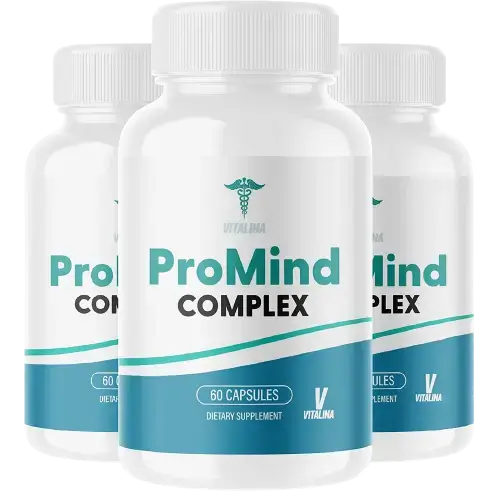Living a healthy life doesn’t have to feel like a full-time job. Wellness is less about drastic changes and more about making small, meaningful choices every single day. That’s why we’ve compiled this in-depth guide filled with practical tips for everyday wellness that are easy to apply, realistic, and backed by both science and real-life results.
Whether you’re a busy professional, stay-at-home parent, or juggling school and work, these tips will help you take control of your mental and physical health. Let’s get into it!
What Does “Everyday Wellness” Really Mean?
Everyday wellness means creating habits that support your physical, emotional, mental, and social well-being on a daily basis. It’s not a one-size-fits-all plan. It’s about finding what works for you consistently and compassionately.
The goal is to feel good more often, have better energy, sleep more soundly, and live with less stress. These practical tips for everyday wellness are all about sustainable, doable choices.
Practical Tips for Everyday Wellness
1. Start Your Day With Hydration
Drinking a glass of water first thing in the morning helps jumpstart your metabolism, flush out toxins, and wake up your brain. Add lemon for a vitamin C boost.
2. Prioritize Sleep Hygiene
Stick to a regular sleep schedule. Create a relaxing bedtime routine and avoid screens at least 30 minutes before bed. Quality sleep supports immunity, memory, and mood.
3. Eat Whole, Nutrient-Dense Foods
Fill your plate with colorful vegetables, lean proteins, healthy fats, and complex carbs. Eating a rainbow ensures you’re getting a range of vitamins, minerals, and antioxidants.
4. Move Your Body Every Day
You don’t need a gym. A brisk walk, stretching, yoga, or dancing in your living room all count. Movement improves circulation, reduces anxiety, and lifts your mood.
5. Limit Screen Time
Too much screen exposure can strain your eyes, interrupt sleep, and affect mental clarity. Use blue-light filters and take breaks every 20 minutes.
6. Practice Mindful Breathing
Just 5 minutes of deep breathing can lower cortisol levels, reduce tension, and help you re-center. Try box breathing: inhale for 4, hold for 4, exhale for 4, hold for 4.
7. Eat Without Distractions
Mindful eating improves digestion and helps you enjoy your food more. Sit down, chew slowly, and pay attention to taste and fullness cues.
8. Keep a Wellness Journal
Track your habits, moods, meals, sleep, and movement. Not only does this keep you accountable, but it also helps you spot patterns and triggers.

9. Stretch Every Morning
Stretching first thing boosts circulation, reduces stiffness, and energizes your muscles. Focus on your neck, shoulders, spine, and hips.
10. Create a Digital Detox Routine
Set phone-free hours, especially in the morning and before bedtime. Replacing doom-scrolling with reading or nature time can drastically improve mental clarity.
11. Fuel Your Brain With Omega-3s
Fatty acids found in salmon, chia seeds, walnuts, and flaxseed oil promote cognitive health, fight inflammation, and support heart health.
12. Practice Gratitude Daily
Jot down three things you’re grateful for. Practicing gratitude boosts happiness hormones like dopamine and serotonin.
13. Reduce Processed Sugar Intake
Too much sugar increases inflammation and causes energy crashes. Swap sugary snacks with fruit, nuts, or dark chocolate.
14. Set Healthy Boundaries
Saying “no” is a wellness habit. Respect your time and energy. Boundaries reduce burnout and improve emotional resilience.
15. Get Natural Sunlight
Exposure to natural light helps regulate your circadian rhythm, supports vitamin D production, and improves mood.
16. Keep Hydrated All Day
Sip water regularly throughout your day. Dehydration leads to headaches, fatigue, and poor concentration.
17. Cook More at Home
Home-cooked meals are usually healthier and cheaper. It also gives you more control over ingredients and portion sizes.

- Supports Memory Retention
- Reduces Brain Fog and Mental Fatigue
- Enhances Focus and Concentration
- Improves Mood and Reduces Stress
18. Laugh Often
Laughter reduces stress hormones, boosts the immune system, and releases endorphins. Watch a comedy or laugh with friends.
19. Get Regular Health Screenings
Preventative care is key. Stay on top of blood pressure, cholesterol, and other screenings based on your age and family history.
20. Learn Something New
Stimulate your brain with a new hobby, book, or language. Learning builds neuroplasticity and boosts self-esteem.
21. Connect With Loved Ones
Strong social ties improve mental health, reduce stress, and may even lengthen your lifespan. Reach out regularly.
22. Limit Caffeine Late in the Day
Caffeine after 2 PM can mess with your sleep. Switch to herbal tea or water to stay calm and hydrated.
23. Keep Your Environment Tidy
A clutter-free space can reduce anxiety, increase focus, and create a sense of calm. Start with one room or corner.
24. Practice Positive Self-Talk
Your inner dialogue matters. Replace “I can’t” with “I’m working on it” or “I’ll give it a try.”
25. Make Time for Rest and Joy
Productivity is great, but so is pleasure. Schedule downtime. Paint, nap, garden, or just sit outside. Wellness includes joy.

Why These Tips Actually Work
These practical tips for everyday wellness are rooted in basic biology. When you hydrate, nourish your body, move, sleep well, and stay emotionally connected, you balance key hormones like cortisol, serotonin, melatonin, and dopamine. Your immune system becomes more resilient. Your brain functions more clearly.
These aren’t hacks. They’re sustainable micro-habits.
FAQs: Practical Tips for Everyday Wellness
1. How long does it take to see results from daily wellness habits?
Results vary, but many people feel noticeable changes in mood, energy, and digestion within 7–10 days of consistent effort.
2. Do I have to follow all 25 tips to feel better?
No! Start with 3–5 that feel manageable. Build gradually. Progress is more sustainable than perfection.
3. Can these tips help with stress and anxiety?
Absolutely. Several tips reduce cortisol levels and boost serotonin, which helps manage anxiety and improve resilience.
4. Are these wellness tips suitable for people with chronic illness?
Most are, but always consult your healthcare provider before starting new routines, especially physical activities or supplements.
5. What if I don’t have much time?
Pick small wins hydrate, stretch, breathe deeply. Even 2 minutes of mindfulness can improve your day.
6. Can kids or teens use these wellness tips too?
Yes! These are universal habits. Encourage wellness early on for long-term benefits.
Conclusion
Maintaining a healthy lifestyle is an ongoing journey, not a one-time goal. By incorporating these practical tips into your daily life, you can improve your health and well-being significantly. Remember, small, consistent changes can have a big impact over time. Start today, and support your journey towards a healthier, happier you.

- Promotes Deep Sleep for Restoration
- Boosts Metabolism and Fat-Burning
- Reduces Stress and Cortisol Levels
- Supports Energy and Mental Clarity
Also Read:







